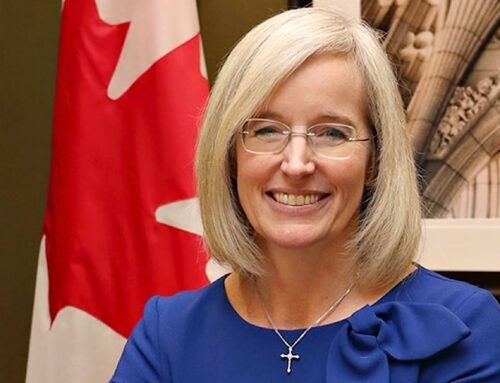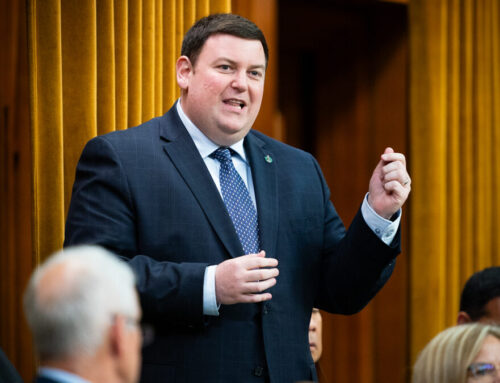
Euthanasia Prevention Coalition executive director Alex Schadenberg says it is not possible to develop an effective law on assisted-suicide in four months.
On Jan. 15, the Supreme Court of Canada granted the federal government a four-month extension to pass a law on the issues of euthanasia and assisted suicide. On Feb. 6, 2015, the Supreme Court struck down Canada’s assisted suicide law and gave parliament 12 months to legislate on the issues.
The Conservative government did not introduce legislation before calling the early election in August, two months before the scheduled Oct. 19 federal election. Harper’s Tories were defeated by Justin Trudeau’s Liberals and new House leader Dominic Leblanc has said that while passing a law on assisted-suicide and euthanasia is a priority, it cannot be done before the Feb. 6 deadline. The government requested a six-month extension to rewrite the law.
Despite the government’s claim of urgency, it did not name the members of the special joint committee on physician-assisted dying until Jan. 11. The committee comprised of 16 MPs and Senators. Only two known pro-lifers, Conservatives Michael Cooper and Mark Warawa, were on the committee. They are expected to report back to the House in late February or early March.
In its unanimous decision, the Supreme Court extended the deadline until June 6 to rewrite the law on assisted-suicide and euthanasia.
But by a 5-4 decision, the Court allowed Quebec’s law permitting euthanasia and assisted-suicide to stand, meaning the procedures are available in Quebec while the federal government comes up with its new law. The justices will also permit anyone who wants to avail themselves of assisted-suicide to petition their provincial superior court to be granted permission to end their life.
The majority included justices Rosalie Abella, Suzanne Cote, Clement Gascon, Andromache Karakatsanis, and Richard Wagner, all but Abella Stephen Harper appointees. The majority decision stated, “the prejudice to rights flowing from the four-month extension outweighs the countervailing considerations,” and “the exemptions can mitigate the severe harm that may be occasioned to those adults who have a grievous, intolerable, and irremediable medical condition by making a remedy available now.”
It is the first time the Supreme Court has allowed people to apply to a judge for permission to break an existing law during a period in which the court has suspended its decision.
The federal government in its petition for an extension did not oppose Quebec’s request for an exemption from a continued enforcement of Section 241b prohibition of assisted-suicide. Prime Minister Justin Trudeau has called Quebec permissive regime a model for Canada’s assisted-suicide law.
Chief Justice Beverley McLachlin, justices Russell Brown, Thomas Cromwell, and Michael Moldaver comprised the minority that supported the four-month extension but opposed granting Quebec or individuals an exemption to the law while a new law is being written. They argued that the legislators had to resolve “the overlapping federal and provincial” issues involved in establishing a legal regime of assisted-suicide.
If the government does not write a new law, euthanasia and assisted-suicide could be regulated by the provinces as a health issue; indeed, assuming the Liberals pass a law permitting euthanasia and assisted-suicide, it will be up to the provinces to implement the law through their health systems. Euthanasia was on the agenda for the Jan. 22 meeting of provincial health ministers and their federal counterpart Jane Philpott. At the Vancouver meeting, Philpott said Ottawa will set the parameters for doctor-assisted killing but that provinces will be responsible for implementing it. “Those are decisions provinces and territories will have to make,” she said.
The Canadian Medical Association called for national guidelines, saying its membership wants consistent rules to help protect doctors and to provide clarity to patients.
The Euthanasia Prevention Coalition of Canada says that in its 2015 ruling, and again last month, the Supreme Court “employed language that permits euthanasia in its irresponsible and dangerous decision.” The Court ruled that individuals with severe but not necessarily terminal physical and psychological conditions have the constitutional right to have a doctor aid them hasten their death.
The EPC’s Alex Schadenberg said, “the Euthanasia Prevention Coalition is concerned that it is not possible to devise and pass effective legislation on euthanasia and assisted suicide within four months,” and “we are further concerned that Superior Court judges will be given the right to approve lethal injections without proper definitions and effective parameters around their decisions.”




